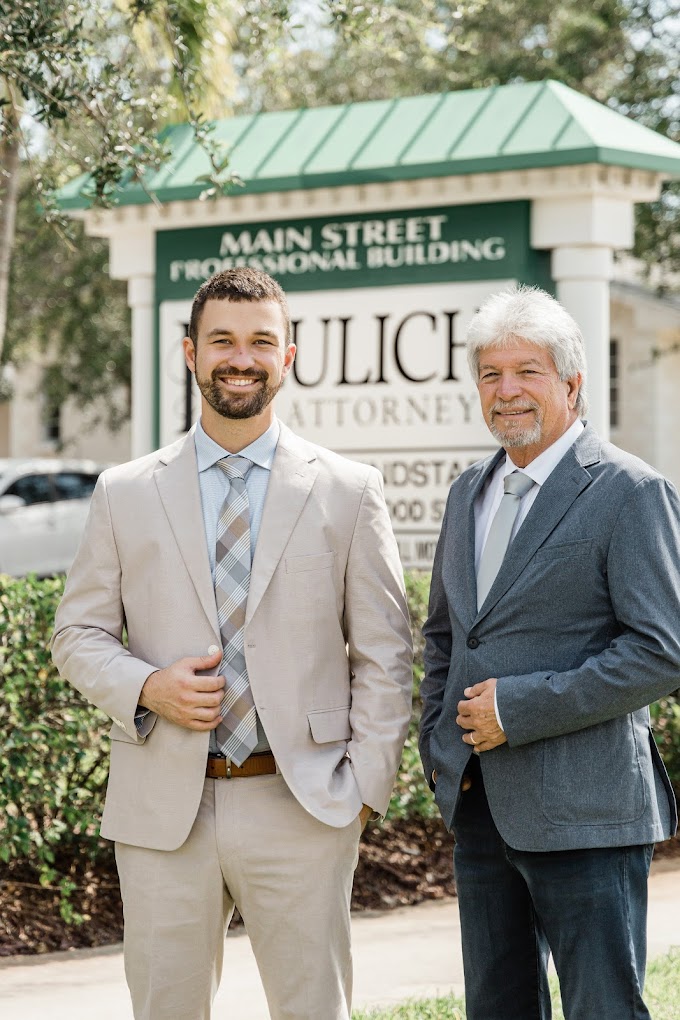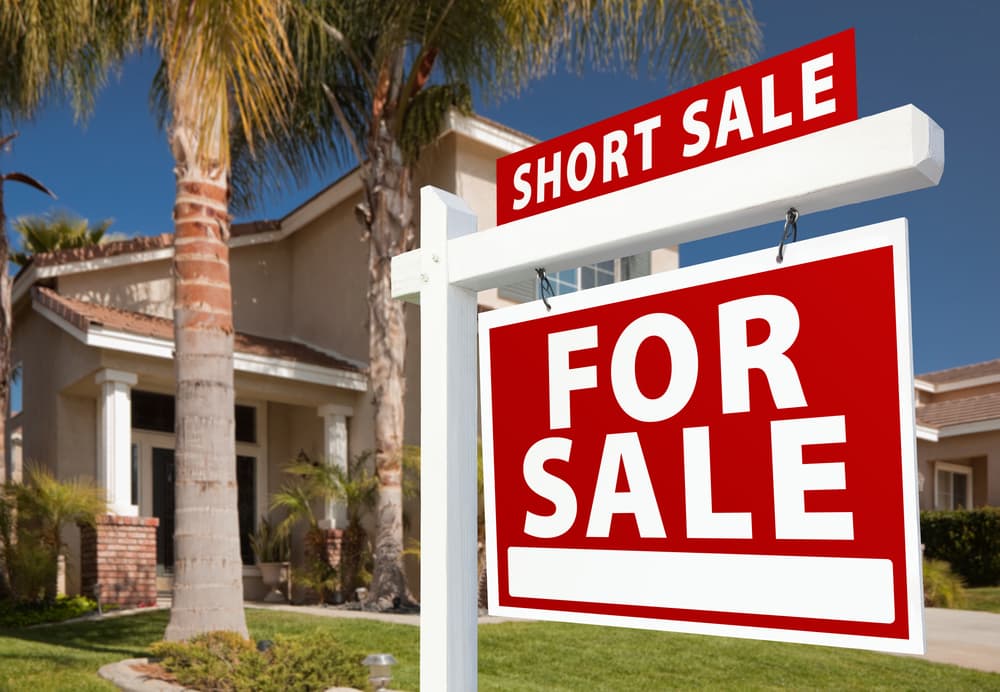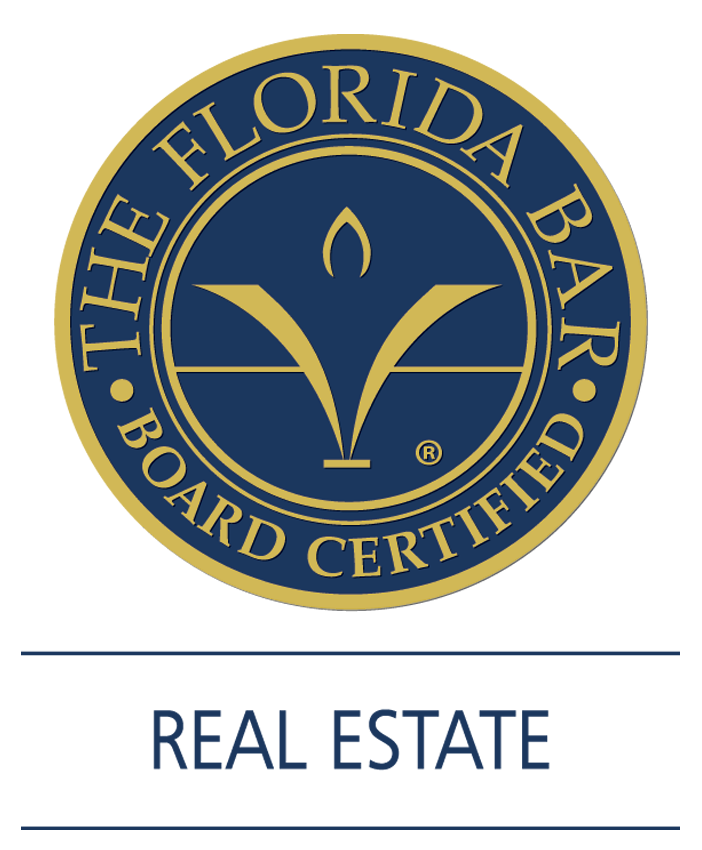What Is a Short Sale?
When financial challenges become insurmountable, homeowners might find themselves in a position where they can no longer afford their mortgage payments.
A short sale can prevent foreclosure and the subsequent damage to credit scores. This complex process involves selling your home for less than the remaining amount on the mortgage, with the lender agreeing to accept less than the owed amount.
Although beneficial to homeowners, navigating the labyrinth of a short sale can be overwhelming without proper guidance. This is where the skill of a competent legal team comes in.
At Lulich & Attorneys, we dedicate ourselves to protecting our clients’ interests and guiding them through the process. With years of experience in real estate law and a successful track record of short sales, we have the knowledge and skills to allow our clients to mitigate their financial troubles. Contact us today for a evaluation of your case.
Why Choose Lulich & Attorneys?

Selecting the right lawyer is crucial. Lulich & Attorneys have a long-standing tradition of excellence in real estate law. With decades of combined experience, our highly skilled attorneys handle various real estate matters, including short sales.
We have successfully guided countless homeowners through the intricacies of short sales and have the utmost dedication and commitment to each client's unique needs.
We understand that each short sale case is distinct and requires a detail-oriented and efficient approach. It's our pleasure to offer our services at our conveniently located offices in Vero Beach and Sebastian, making it easy for you to reach out to us and begin resolving your financial issues.
Short Sale Compensation
As explained by Investopedia, short sales usually occur when a homeowner is financially distressed and has missed one or more mortgage payments. Initiating a short sale can offer multiple financial benefits, including averting foreclosure and reducing credit score damage, which is imperative for securing future credit.
The process, however, requires meticulous navigation as it tends to be paperwork-heavy and doesn't always negate mortgage debt. The lender must approve the short sale, commonly leaving the buyers to ensure they meet the requirements.
At Lulich & Attorneys, we pride ourselves in allowing homeowners to maximize the benefits of the short sale process. We will work tirelessly to ensure you attain the best possible outcome.
Short Sales in Florida

Short sales have become increasingly common in various parts of the country, including in Vero Beach, Sebastian, and throughout Florida. There has been a significant surge in short sales in the past few years due to various economic factors.
Florida has one of the nation’s highest numbers of foreclosures, with more than 4,000 starts in a single quarter of the year.
Bankrate explains that a foreclosure occurs when a borrower cannot make their mortgage payments, and the lender takes control of the property.
In Florida, lenders normally use judicial foreclosures, and the lender must file a lawsuit. The homeowner has 30 days to make up missed mortgage payments, or the foreclosure process will proceed.
Foreclosures generally occur after three to six months of missed payments. Short sale usage in Florida has been largely positive in avoiding a continued increase in foreclosures, offering substantial relief to homeowners facing financial distress.
Understanding Short Sales

To fully appreciate the value of a short sale, a lawyer can explain the roles of the homeowner, buyer, and lender.
- The homeowner offers the property for sale at less than the outstanding mortgage amount. To do this, the homeowner needs permission from the lender. While being able to sell the home before a foreclosure provides credit benefits, you must understand that a short sale will result in the loss of your home and will have some negative implications for your credit, though not as severe as foreclosure. Homeowners who complete a short sale can typically borrow for a new home more quickly than if they had gone through foreclosure.
- The buyer gets the property at a relatively lower price. As The Mortgage Reports explains, however, short sale homes are typically sold as-is, even if an inspection reveals problems. Offering a lowball price can result in a lengthy process or make the lender stop dealing with the prospective buyer. Banks need not disclose short sales like a seller in a traditional home sale process. Hiring someone to inspect the property is even more crucial for the buyer to understand whether the property is worth the longer sale process and increased risks.
- The lender recoups a part of the loan amount, reducing their loss and saving them the time and effort spent on foreclosure proceedings. In the short sale process, the lender doesn't evict the homeowner as they would in a foreclosure. They agree to allow the homeowner to sell the home for less than they owe. The lender may approve or refuse any sale, and whether to forgive the remaining mortgage debt or require repayment is theirs.
Although a short sale can have numerous advantages, it has potential setbacks, such as tax consequences. When a lender agrees to forgive part of a debt, the forgiven amount usually becomes taxable income. It's crucial to weigh the pros and cons before deciding.
Why Would a Buyer Want To Participate in a Short Sale?
Many homebuyers are looking not only for a place to live but also a good deal on a home they can use for themselves or turn into a rental for extra income. When the real estate market features homes that are selling far above the list price, short sale properties commonly provide good deals.
Short sales can take longer to complete than a traditional home sale due to the approval of the sale by the lender and other lienholders, so there is commonly less competition for short-sale properties.
According to Gitnux, around one-third of all home buyers in U.S. real estate markets are first-time buyers who are more likely to seek a purchase from the traditional market and shy away from a short sale.
Battling With Lenders in a Short Sale
Negotiating a short sale with lenders can be daunting, as their primary concern is minimizing losses. Challenges may arise due to the lender's reluctance to approve a short sale or accept the offer made by a potential buyer.
With Lulich & Attorneys by your side, you have a team that can negotiate the best conditions for your short sale, reducing stress and anxiety.
As explained by HGTV, the steps of the short sale process are typically as follows:
- The homeowner submits the required documentation to their lender to determine if they are eligible for a short sale. This documentation often includes a hardship letter that explains to the lender why the homeowner feels that a short sale is necessary.
- The lender pays for an appraisal of the property to determine its market value. Once complete, the lender sends the homeowner a valuation letter with a recommended list price and an expiration date.
- The homeowner finds a qualified representative to list the property.
- The homeowner's representative accepts offers from interested buyers and submits the highest complete offers to the lender. A complete offer includes the buyer's qualification for buying, an earnest money deposit, a purchase contract, and a broker's description of the current market.
- The lender reviews the offer and decides whether to approve it or submit a counteroffer.
- The lender approves an offer, establishing the terms under which the buyer and seller must complete the sale.
- The lender releases the seller from some or all of the responsibilities of their original loan upon closing the sale.
HGTV notes that the short sale process is generally faster than foreclosure but can take much longer than a traditional sale. This is particularly true if there are multiple mortgages or liens on the property, such as home equity loans or tax liens.
Each lienholder is then party to the sale. While the primary lender receives funds first, junior lienholders have the right to refuse the sale if they cannot satisfy the debt from the proceeds.
Having an experienced Board Certified Real Estate Attorney negotiate with your mortgage lender can not only pave the way for a short sale to take place but can also often provide you with better terms, such as forgiveness of debt related to the amount of the mortgage versus the amount of the sale.
An experienced real estate lawyer can also provide beneficial services to real estate agents who work with clients with an interest in purchasing short sale properties or obtaining a short sale on their property. The lawyer will provide legal and tax advice and ensure clear titles, title insurance, and other complex requirements under Florida real estate law.
Steps to Take When Considering a Short Sale
If you're contemplating a short sale, you must prepare adequately. Contact a real estate attorney to understand the potential consequences for your financial situation, gather all necessary documentation, and consider other options.
Some alternatives to a short sale, depending on your circumstances, can include:
- Finding a way to continue paying your mortgage until you can sell the home with equity. This is often a better option than a short sale if the market value of your home is more than what you owe, as it will allow you to extricate yourself from the mortgage and perhaps have some money remaining for relocation.
- Requesting a mortgage release or deed-in-lieu of foreclosure from the lender. This involves voluntarily transferring ownership of the home to the mortgage company if you're facing financial hardship and cannot continue making payments. If foreclosure proceedings have already begun, a deed-in-lieu of foreclosure can help you start repairing your credit sooner.
- Obtaining mortgage assistance if your financial struggles are temporary. As Fannie Mae explains, some temporary forms of mortgage assistance include a forbearance that temporarily suspends monthly payments in times of hardship, a payment deferral that allows you to delay past due amounts until the end of the loan term, or a loan modification or refinance that can change the terms of your loan.
The better your preparation, the more likely you will have a successful negotiation. Never underestimate the power of legal guidance when considering a short sale. Lulich & Attorneys will navigate the complexities of the process for you.
Contact Lulich & Attorneys for Advice on Your Short Sale
A short sale can be a lifeline when facing financial difficulties, allowing you to get out from under the weight of a mortgage you cannot afford to pay while avoiding some of the damage to your credit from foreclosure. The process requires legal guidance, however.
If you're considering a short sale, don't hesitate to contact Board Certified Real Estate Lawyer at Lulich & Attorneys. With our case evaluation, we can discuss the potential benefits of a short sale for you.
Fight for your financial future. With Lulich & Attorneys, you have a team that will commit to regaining your control. Contact us today by calling (772) 589-5500 for our Vero Beach location, (772) 492-4611 for our Sebastian office, or by sending us a message online.
